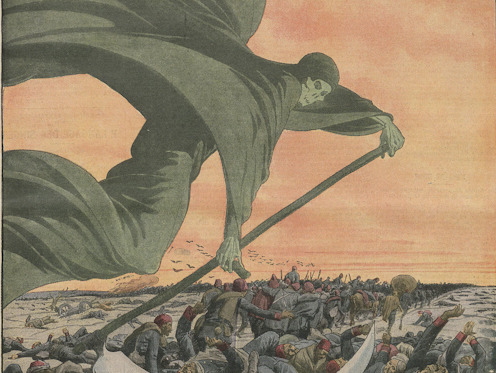Simon Schama's history of 18th and 19th century disease outbreaks speaks powerfully to the present
- Written by Ella Stewart-Peters, Affiliate, College of Medicine and Public Health, Flinders University

Pandemics. Quarantine. Vaccines. These concepts have been at the forefront of our minds for over three years now. Having lived through the height of the COVID pandemic, it would be easy for us to imagine we have just experienced something unique in human history.
In Foreign Bodies: Pandemics, Vaccines and the Health of Nations[1], Simon Schama illustrates that this is about as far from the truth as possible. He examines the reactions to outbreaks of smallpox, cholera and plague in the 18th and 19th centuries, focusing on some key individuals – people who are often left out of the grand narrative of scientific progress.
Review: Foreign Bodies: Pandemics, Vaccines and the Health of Nations – Simon Schama (Simon & Schuster)
Schama specialises in Jewish and French history, and some have suggested he is not necessarily the right person to write a history of public health responses to diseases of pandemic proportions. But as a historian of medicine and public health, I find it quite revolutionary to see a historian of Schama’s ilk examining the field.
I was ten years old when I watched his BBC series A History of Britain[2]. It was the first time in my life I genuinely understood that history was something that can never truly be “known”, but was something to be studied and interrogated for its nuances and hidden stories. To read Schama writing about an area of history I am personally invested in is genuinely exciting.
















